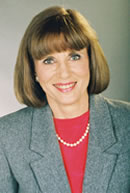Is there age discrimination at your company? Here's how businesses can institute new polices requiring all employees to participate in fun and informative workshops to overcome ageist assumptions about younger workers or seniors. Get rid of prejudices and limiting beliefs that prevent camaraderie, productivity, and profits. It works!
An AARP article stated facts about seniors in the workplace:
- About 35% of the U.S. population is now 50 years or older.
- Three out of five workers 50+ years of age have seen or personally experienced age discrimination in the workplace.
- Older workers are discouraged to see advertisements that say, "College graduates apply for…" and assume they are not wanted there.
Age discrimination happens in mainly four areas of the workplace:
- Hiring and Recruitment – Preferences are given to younger workers.
- On-the-Job Bias – Seniors are harassed, made fun of, and overlooked for promotions, raises, training opportunities, and/or transfers, and thought of as obsolete.
- "Corporate Restructuring" – a not-so-subtle way of easing seniors out of their positions, eliminating divisions or departments, and not giving seniors opportunities for retraining, lateral moves, or advancement.
- Termination – Seniors can be the first to go when HR assumes they’re not current with the new technologies, going to retire anyway, disregard seniors’ experience, wisdom, skills, and connections.
Most of the reasons seniors are laid off are economical:
- Companies hire younger workers who begin at entry-level salaries, avoiding paid bonuses or stock options, which seniors may receive.
- Younger people are thought to be healthier. It is assumed that they will not need time away from work for hospital visits, doctors' appointments, illnesses, recuperation from surgeries, having to deal with sick or ailing parents or spouses, or other incapacities that can limit their time on the job.
- HR sometimes assumes that older workers can’t relate to younger workers in terms of values, and cultural and social norms. They assume the reverse is also true -- younger workers disdain older workers and think they have nothing to learn from seniors. Older workers may see younger workers as arrogant and not reaching out for their wisdom and guidance or regard them as mentors.
- Technology changes quickly and assumptions that senior workers won’t be able to keep up and are slow on the learning curve curtail companies spending money and training seniors for new software programs when younger workers already know how.
What can be done to bridge generation gaps and overcome faulty assumptions so wisdom and age can be compatible with enthusiasm and youth?
Require communication skills training and diversity workshops for all employees to overcome misunderstandings, prejudice, and discrimination based on age, race, or gender. Developing empathy and compassion, understanding what someone else is going through, being a good listener, and practicing active listening skills, as formulated by a legendary psychologist, Dr. Carl Rogers, are the keys to a happy, safe workplace, where all members -- no matter their age, race or gender -- have respect, education, opportunities, advancement, and training.
Look at some of the most successful companies in America and you will find the 3 C’s -- camaraderie, cooperation, and collaboration. Institute these values at your company and see the 3 P’s pop up -- productivity, performance, and profit.
Dr. Linnda Durré, Licensed Psychotherapist, is an expert witness, psychotherapist, family counselor, intern supervisor, international speaker, author, business consultant, adjunct college professor, and a magazine, Internet, and newspaper columnist. She has worked with Fortune 500 companies, nonprofits and small businesses. With over 44 years of experience, she consults to attorneys and has been qualified as an expert witness in six (6) states - Florida, California, Arkansas, Georgia, Connecticut, and Washington - in the areas of, Personal Injury, PTSD, Family and Couples Counseling, Divorce, Child Custody, Drug and Alcohol Counseling, Sexual Harassment and Discrimination, Relocation, and Sexual Abuse by Therapists. Her 400-page doctoral dissertation and research in the latter area was cited to pass legislation in several states.
©Copyright - All Rights Reserved
DO NOT REPRODUCE WITHOUT WRITTEN PERMISSION BY AUTHOR.










